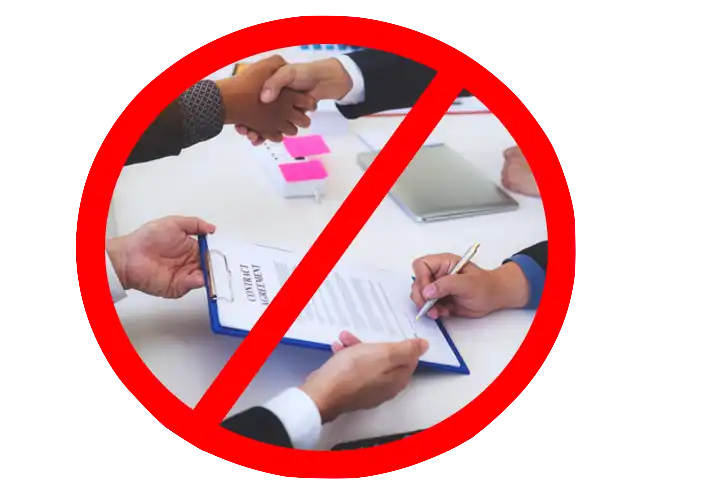 The workplace as we know it is about to dramatically change as companies rapidly go paper free.
The workplace as we know it is about to dramatically change as companies rapidly go paper free.
Companies Must Go Paperless
The open-floor office -- with collaborative work areas, ping-pong tables, and shared kitchens -- could become history when companies reopen. Collaborative workstations shared kitchens and water cooler chat areas will likely be discouraged this spring, summer and fall.
 So concludes a recent New York Times article. Instead of in-house coffee bars and standing desks, the article suggests that the new perk could be a sneeze guard. Offices are being configured to hold down the risk of transmitting or getting exposed to viruses.
So concludes a recent New York Times article. Instead of in-house coffee bars and standing desks, the article suggests that the new perk could be a sneeze guard. Offices are being configured to hold down the risk of transmitting or getting exposed to viruses.
Tracy Wymer, vice president for the workplace at office furniture maker Knoll puts it this way:
“We can’t ask employees to come back to the same office. Companies feel we have to address the root fear.”
It’s not just the physical working environment that has to change in order to address safety and people’s fears. So does a company’s entire workflow. And more than anything else, that means that paper documents will need to disappear and scanning documents more common.
Three Reasons Companies Are Going Paperless
Offices will need to go paperless for multiple reasons.
First, passing around important documents and putting them in filing cabinets will no longer be practical. Employees will no longer work physically near one another. Working remotely will become far more common. Remote workers won’t even be able to access paper forms filled out or filed in an office.
Secondly, offices will go paperless involves the fear factor. COVID-19 can live on surfaces for varying time periods, and people are becoming frightened of handling paper forms and paper bills.
For example, back in February Chinese banks began disinfecting cash because people were frightened to handle it. A business can’t survive if its employees are frightened of handling the forms it uses. Employees are increasingly reluctant to handle paper around the office. They have concerns about touching the shared clipboard and pen passed around with paper forms.
Thirdly, the amount of paper will disappear at the office because they are inefficient and will become increasingly obsolete. With more workers using tablets and smartphones the cost of "computers" has gone down.
Employees - even those who traditionally did not use computers in their daily work - are now more tech savvy. They use apps every day to run their lives. Paper is viewed as slow, inaccurate, and cumbersome. With people using apps that capture information automatically, auto-populate forms, and more, paper is increasingly frowned upon. And the green movement helps to accelerate the move to digital.
The Push for Digital Documents
A coalition of tech companies sent a letter to Congress urging politicians to fund upgrades to digital infrastructure. The letter encouraged a move to digital files. The letter says:
“Outdated government IT systems and processes already hinder some federal and state agencies’ ability to deliver aid to new applicants for small business loans and unemployment insurance. The COVID-19 pandemic also exposes the need to redouble efforts to digitize federal forms and reduce reliance on hand-processing paperwork.”
Mobile forms can save companies a tremendous amount of money and eliminate time spent doing data entry or paper file searches. Digital forms can also help businesses operate more efficiently and identify new revenue streams.
Go Paper Free Fast and Affordably

One particularly robust and affordable solution, Alpha TransForm (template forms available), is ideal for going paperless. It allows business workers and developers to digitize forms for under 1 hour of work per page of a form. The solutions's powerful document management system integration and cloud storage make it a powerful enterprise tool
Virtually anyone can turn a paper form into a mobile app with the latest mobile phone features, like mapping, photos and electronic signatures. The forms can also work with or without a cell or WiFi connection. Power users can use the built-in programming language and on-device database storage to add more advanced capabilities. These might include database and reference material looks, workflow triggering, pre-loading of forms data, adding google weather reporting, etc.
Moving to a Paperless Office
Some benefits of going paperless include:
- building a paperless office
- reduce paper waste
- easing remote work.
Alpha TransForm lets companies affordably and flexibly go paperless and build all the mobile forms they need for their business. Alpha TransForm digitizes a range of data collection forms, such as intake forms, inspection forms, maintenance forms and more.

Whichever solution companies select, the time has come for companies to go paperless and embrace no-code software that produces digital documents. Companies and their team members that go paperless today will be ready to reopen in a safer and responsible way.








Comment